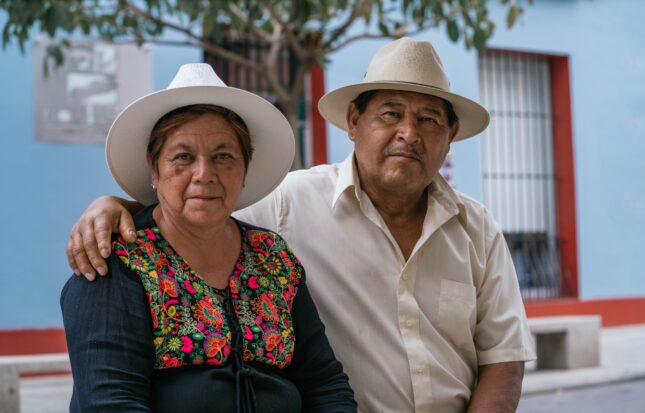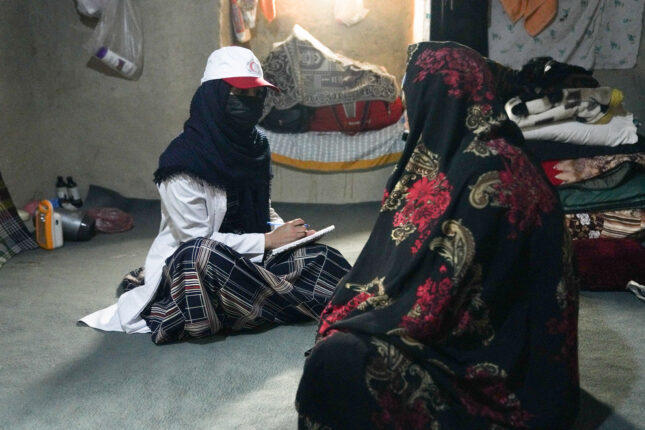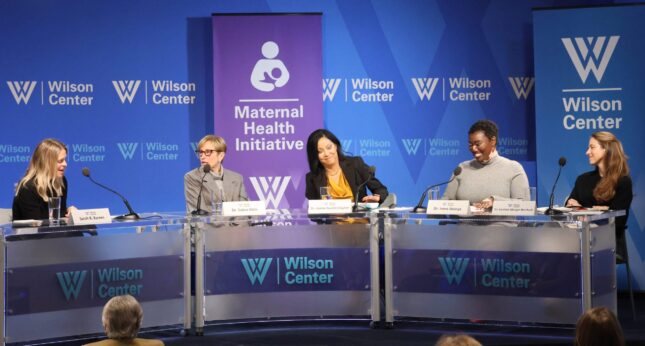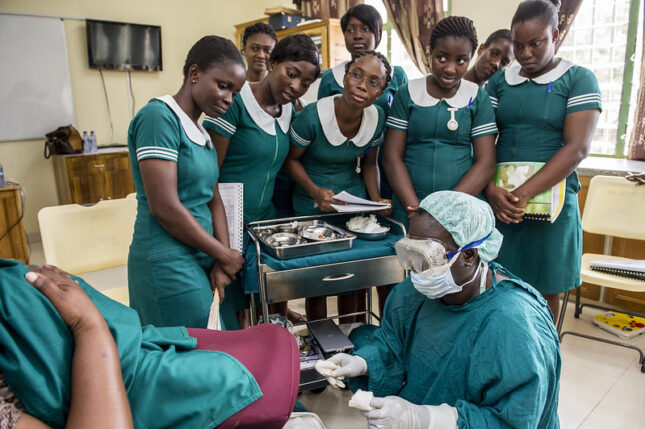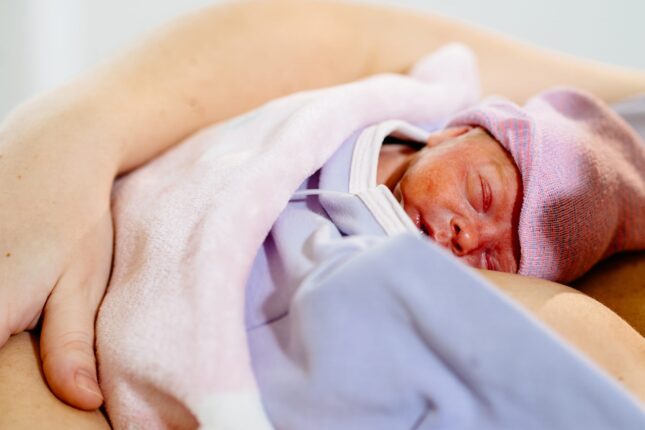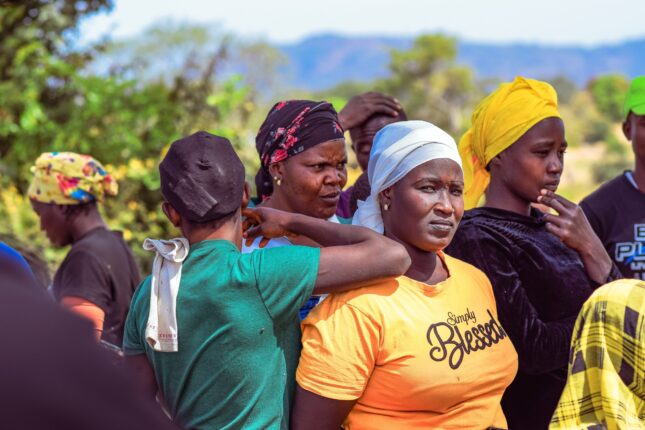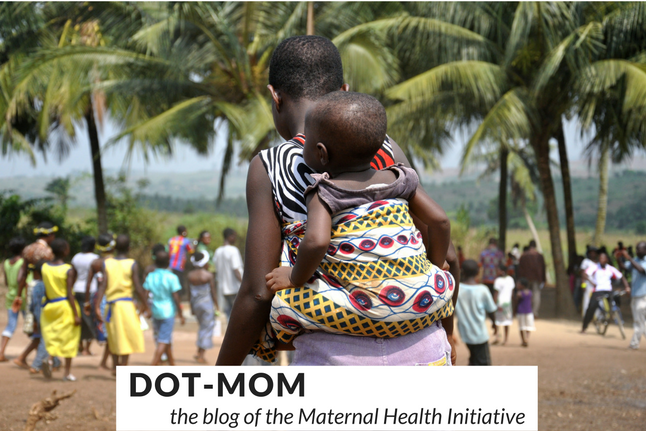
An estimated 810 women die from pregnancy- or childbirth-related complications around the world every day. And for every woman who dies, it’s estimated 20 more experience acute or chronic morbidity. Ninety-nine percent of maternal deaths and morbidities occur in developing countries.
The Dot-Mom column is committed to improving maternal health outcomes by increasing knowledge, understanding, and communication of creative interventions that can be integrated into policies and programs worldwide.
Follow MHI via “Dot-Mom”, on Twitter, and on Instagram
PHOTO CREDIT: USAID IN AFRICA.
-
How Solar Powered Water Pumps in Pakistan Also Empower Women and Girls
›Dot-Mom // Guest Contributor // March 12, 2025 // By Faiza Rab, Natalie Jette, Uroosa Khatti, Manzoor Ali, Jam Singh & Salim Sohani
In the arid expanse of Tharparkar region of Sindh, Pakistan, the land is parched, and the desert stretches endlessly. Scarcity defines existence, and shapes every facet of daily life. Over 80% of the population this semi-arid region of the Thar Desert lacks access to safe drinking water, and poor sanitation heightens the risk of health crises.
-
Mexico Is Growing Old. Can It Build a Care System in Time?
›
Elvia León, the youngest of seven children, wanted to leave Bomintzhá back in 1987. “I told my mother that I didn’t want to live in that kind of poverty, and she supported me.” Her father was less pleased with her plans to abandon their small community in Mexico’s Hidalgo state to study in the city of Querétaro. “The culture here is that women are meant to be at home, doing domestic chores.”
-
Afghanistan Widows: The Silent Struggle of Women-Headed Households
›Dot-Mom // Guest Contributor // February 19, 2025 // By Massoma Jafari, Ijia Ormel, Faiza Rab, Basnama Ayaz, Carla Taylor & Salim Sohani
Close your eyes for a moment. Now imagine stepping back in time to an era when women in Western countries had no rights, no security, and no voice.
Now open your eyes again. In our own moment, millions of Afghan women—and in particular widows—live in just such a moment. This reality has never changed for them, and, in fact it has only worsened. Afghanistan remains one of the most repressive places in the world to be a woman: education is banned, employment is restricted, and even traveling alone is forbidden.
-
Closing the Women’s Health Gap: Research, Investment, and Eliminating Inequities
›
“The longstanding underrepresentation or exclusion of women in clinical trials and the continued need to understand sex as a biological variable have resulted in still knowing too little about how to effectively prevent, diagnose, and treat a range of health conditions in women,” said Dr. Carolyn M. Mazure, former Chair of the White House Initiative on Women’s Health Research in her keynote address at a recent Wilson Center event: Bridging the Gap in Women’s Health Research. The event was held in partnership with EMD Serono, the healthcare business of Merck KGaA, Darmstadt, Germany, as the first-ever Women’s Health Research Summit at the Wilson Center.
-
Conflict in Sudan: Widespread Sexual Violence
›
This article originally appeared on Enheduanna, a blog of the Wilson Center’s Middle East Women’s Initiative.
Only a few years ago, the world celebrated the women-led revolution in Sudan that ousted the former dictator Omer El-Basher after 30 years in power. Women were fed up with his government. Those who used to live in the urban areas experienced the humiliating public order laws: they were arrested and flogged for wearing trousers or walking around with no headscarves.
-
2024 Dot-Mom Guest Contributor Highlights
›
The Dot-Mom column of the Environmental Change and Security Program’s New Security Beat blog serves as a platform for diverse perspectives and insights from global experts in maternal and global health, gender equality, and peace and security. In 2024, the Dot-Mom column, hosted by the Wilson Center’s Maternal Health Initiative, was marked by an incredible number of guest contributor articles.
-
Kangaroo Mother Care: A Critical Role in Welcoming the Tiniest Lives
›
“When babies are born early, they actually are not prepared to be in an environment that’s below [the temperature] of the human body, and they have to start pulling calories to be able to keep their body temperature at 37 degrees Celsius,” said Dr. Ann Hansen, a neonatologist at the Neonatal Intensive Care Unit at Boston Children’s Hospital and Founder of the Global Newborn Solution during a recent event held in commemoration of World Prematurity Day. “To keep them in what we call a thermal neutral environment, they need to have an external heat source.”
-
Rethinking Peacebuilding in Northeastern Nigeria
›
In October 2024, women from countries across the globe converged on New York for the United Nations Security Council’s annual open debate on Women, Peace and Security (WPS).
In Nigeria, however, thousands of women and girls were sighing in despair. Many of them were thinking about where they might find their next meal. A humanitarian crisis in Nigeria’s northeast region remains critical, and people living there are in dire need of food, clothing and shelter.


